
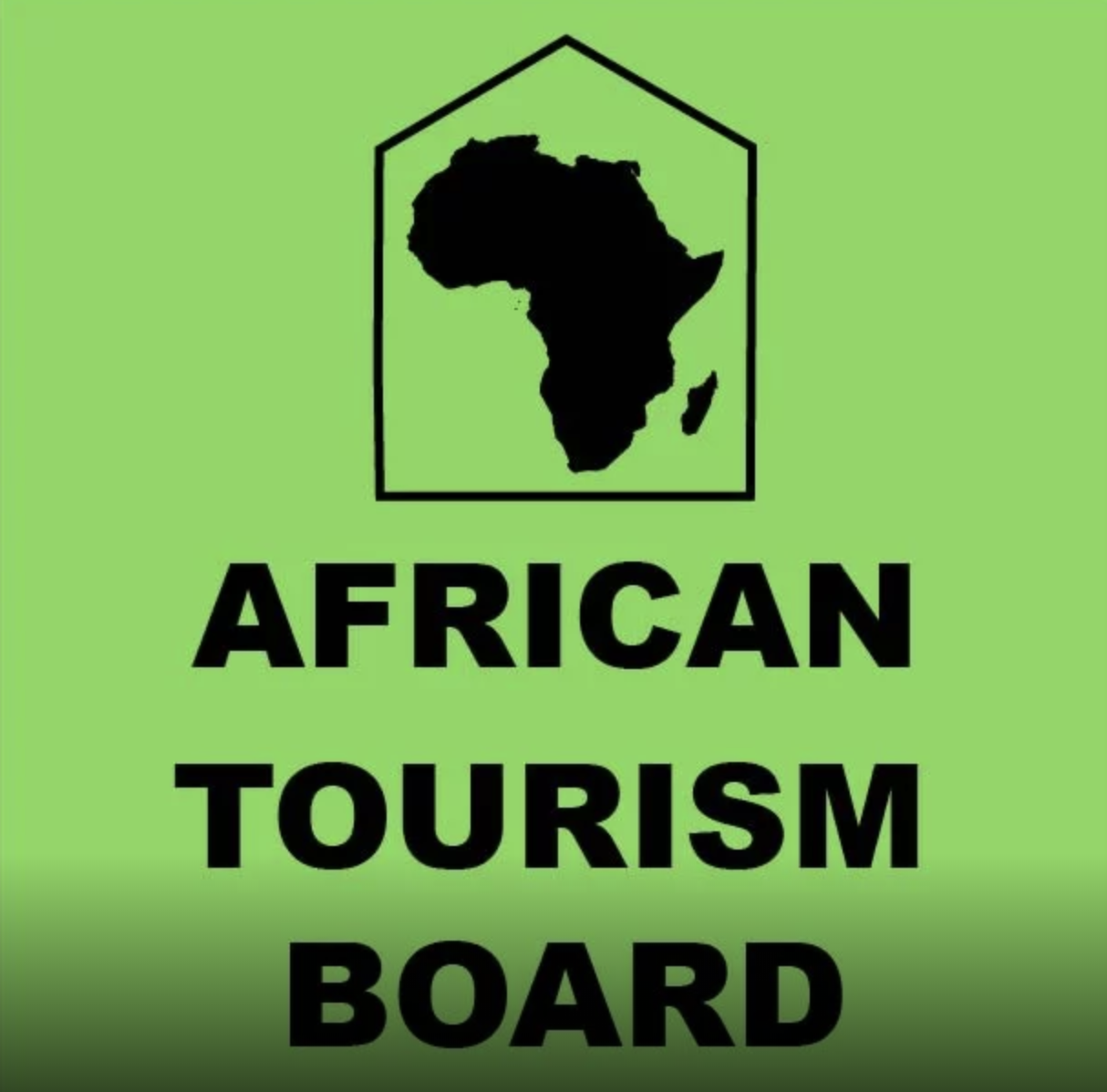
African Tourism Board President St.Ange: African Tourism is united now
The new president of the African Tourism Board is not a newcomer in the African travel and tourism industry. Alain St. Ange was the minister of Tourism for Seychelles and prior to that the head of the Seychelles Tourism Board.He had made a name for all of Africa when he started the Victoria Carnival for Africa and the world.Commenting on his new position he stated:
“When I took up the position of President of the African Tourism Board, this brought the world of African Tourism together as I received calls from so many tourism ministers and heads of tourism-related bodies from across Africa, and it clearly showed the importance of tourism for the continent.Even the Seychelles President, Mr. Danny Faure, sent words of congratulations after I assumed my role as President of the African Tourism Board, as did the island’s former President Mr. James Michel.
For Seychelles, the importance of tourism as the industry respected as the pillar of the economy, is known and accepted.But Seychelles is no different to the rest of Africa because a buoyant tourism industry can only help consolidate the economies of so many countries on the continent.We are now planning the next meeting where together we can look at the challenges we are facing and share success stories and learnings.The newly-appointed CEO of the African Tourism Board, Doris Woerfel, who is based in Pretoria, South Africa, sees huge potential for Africa from China and is already concentrating to build a broad membership base in Africa for ATB.She is now moving to contact industry players across Africa to plan the next meeting which will probably be held in August of this year.The press from across Africa will be invited to attend because success for the African Tourism Board is so dependent on them.”
He concluded in saying: May I urge everyone in the public and private sector to rally behind African Tourism Board to make Africa one Tourist Destination and join.
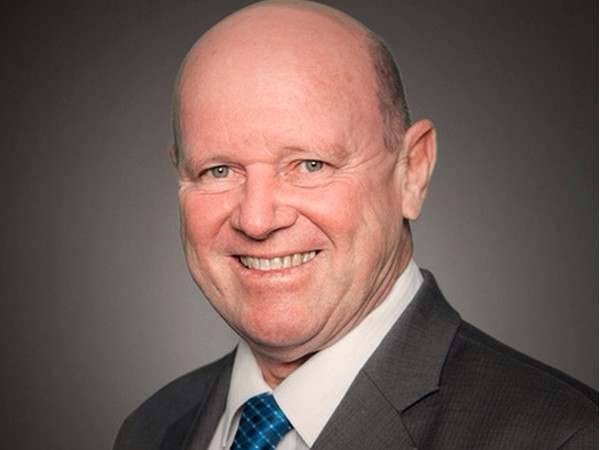

UNWTO World Forum on Gastronomy Tourism to analyze sector’s potential
The countdown begins for the 5th World Forum on Gastronomy Tourism to be held on 2 and 3 May in Donostia-San Sebastián, organized by the World Tourism Organization (UNWTO) and the Basque Culinary Center (BCC). International experts will analyze and discuss the influence and capacity of gastronomy tourism to create employment and promote entrepreneurship and how to increase its potential in the future. Registration to attend the forum is still open here.
Stimulating employment
The Forum will explore how the most favorable frameworks can be created in order to stimulate job creation and entrepreneurship throughout the gastronomy tourism value chain. In addition, the speakers will try to identify the most relevant skills for this type of tourism, which should foster synergies among emerging companies, promote the inclusion of disadvantaged groups and take full account of digitalization. The event will bring together speakers and experts from all regions of the world, as well as internationally renowned Basque chefs such as Elena Arzak, who is a UNWTO Ambassador for Responsible Tourism and joint head chef of the restaurant Arzak, and Andoni Luis Aduriz.
In addition, the event will host the presentation of the UNWTO/BCC Guidelines for the Development of Gastronomy Tourism.
The forum will open with a high-level panel with ministers and secretaries of state from countries that have included gastronomy tourism as part of their strategies, such as Cyprus, Slovenia or Spain, among others. Under the theme, “Public policies as key ingredients to promote gastronomy tourism”, the participants will discuss the necessary political framework for the development of gastronomy tourism as well as its capacity to create jobs and promote entrepreneurship.
In addition to shedding light on the competencies needed to meet the demands of gastronomy tourists, the sessions will encourage the creation of environments that stimulate entrepreneurship, that connect emerging companies and better integrate disadvantaged groups in the labour market. Issues related to local communities or to under-represented groups, such as women, youth and persons with disabilities, will also be discussed. In addition, topics such as the digitalization of the sector will also be analyzed in order to identify the new opportunities they offer to companies. In addition, the latest advances in the creation of the necessary framework to stimulate entrepreneurship will be presented, connecting the different ecosystems with the startups that are part of the value chain of gastronomy tourism.
In this context, the five finalist startups of the First Global Gastronomy Tourism Startup Competition, organized by the UNWTO and the BCC, will present the most innovative projects in line with the UNWTO’s strategy and the contribution of gastronomy tourism t
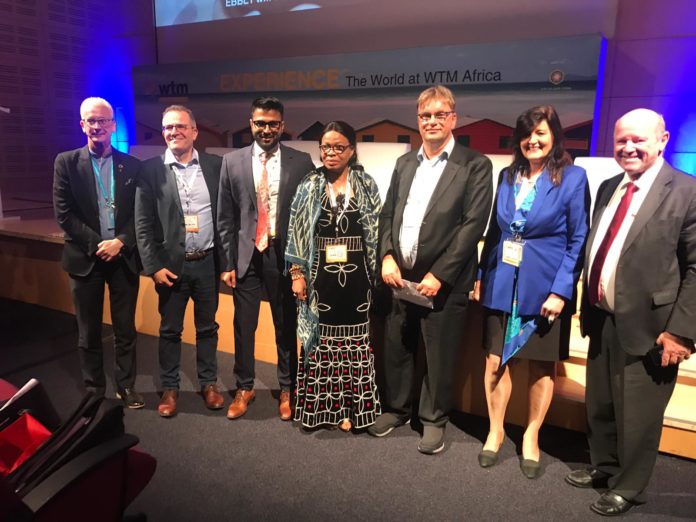
A new era just started for African Travel & Tourism
The two arms of the African Tourism Boardhad their official launch event yesterday at the Cape Town International Convention Center Conference Theatre during World Tavel Market Africa.
The African Tourism Board Association and the African Tourism Board Marketing Association are joining under the brand African Tourism Board and are now seen as a new Chapter on how Africa becomes one tourism destination. Both arms have access to the “ATB friends of the media group”, and are coordinating activities and events whenever possible.
The Association is fully under African Leadership. It’s based in South Africa, and is forming an initial group of directors to work with newly appointed President Alain St. Ange from Seychelles.
On his team of supporters are Cuthbert Ncube, Regional Vice-Chair UNWTO Affiliate Membership and Chief Executive Director Kwela Fleet Management. The Hon. Minister or Tourism for the Kingdom of Eswatini, formerly Swaziland, Kwakye Donker, CEO African Tourism Partners in Ghana and South Africa, Francoise Kameni Lele, AFBS Cameron, the Hon. Minister Madam Memunatu B. Pratt, the Minister of Tourism and Cultural Affairs for Sierra Leone, among many others.
African Tourism Board Marketing Association is based in the United States and is providing overseas marketing support for Africa under the leadership of Juergen Steinmetz of the eTN Group in Hawaii, USA and Doris Woerfel in Pretoria, South Africa. Together with a team of global supporters, the marketing arm of ATB will explore new opportunities and cost-sharing projects for inbound tourism for the African Continent.
As a start at the ATB launch last night Dov Kalmann explained the potential of travelers from Israel for Africa and introduced the new African Tourism Board office in Tel Aviv.
Arjun Mukundd from T&A Consulting India mentioned that the outbound travel from India is increasing at 10-12% annually and Indians are constantly looking at new destinations to explore. Africa with its rich culture, wildlife and pristine beaches would be a great holiday option for Indians.
Additional ATB offices are planned in the United States and Germany to start with.
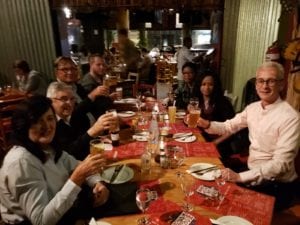
Chairman Juergen Steinmetz explained: “Sharing resources, going after potential niche markets, sharing costs and giving both destinations and stakeholders representation in key markets will help to raise awareness for the African continent. We like to open a window for large, medium and small businesses in a sustainable way.”
Newly appointed CEO Doris Woerfel sees huge potential for Africa from China and will be concentrating to build a broad membership base in Africa for ATB.
The launch was an action-packed event in Capetown hosted by Carol Weaving, Managing Director of Reed Exhibition Africa. She pledged the support of the World Travel Market for African Tourism Board.
Cape Town Tourism CEO Enver Duminy supported the need for an African Tourism Board in his welcome remark.
The highlight of the event was a 30-minute presentation by Dr. Peter Tarlow on security and safety. There is no tourism without security, he said in an engaging session last night. Dr. Tarlow was appointed as the new Travel & Security advisor for African Tourism Board Marketing Association. He is leading safertourism.com
The launch started with a dinner sponsored by Tony Smith of the HongKong based iFREE Group . The group also provided free ATB sim cards to everyone attending.
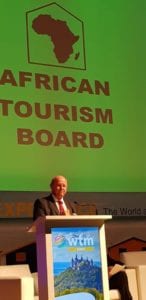
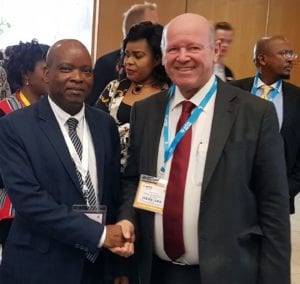

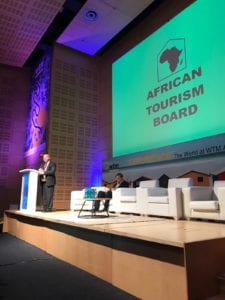
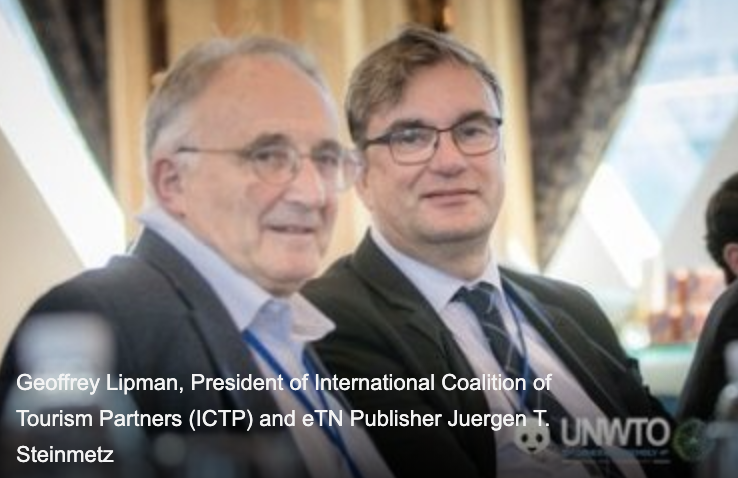
eTN becomes a SUNx SDG 17 Partner calling for Climate Sanity in Tourism on Earth Day
In nature, nothing exists alone is the message for Earth Day 2019. Announcing the public launch of its “SDG17 Partners Program” on Earth Day 2019, Professor Geoffrey Lipman co-founder SUNx, calls and president of the International Coalition of Tourism Partners (ICTP) asks the Travel & Tourism sector to join its “Plan For Our Kids” and take the “Climate Sanity” Pledge.
Professor Lipman, former Executive Director at IATA, President of WTTC and Assistant Secretary-General UNWTO, said:
“I’m confident that Travel & Tourism will play a leadership role in the global shift to a New Climate Economy: we just need a pathway for change and that lies in our faith in the next generation”
SUNx a legacy for Planetary Champion Maurice Strong has created a “Plan For Our Kids”, aiming to recruit 100,000 STRONG Climate Champions to advance its vision of a no Carbon 2050 sector totally compliant with the evolving goals of the Paris Accords.
He added “During the past year we have seen a welcome intensification of the pressures for a new commitment to Climate Sanity, which stops discussing whether climate change is existential and just gets on with solutions. That’s the common message from Greta Thunberg’s Friday’s for Futures and AOC’s Green New Deal: it’s the message from Earth Scientists and Nobel Economists: it’s the plea from Sir David Attenborough.
”Lipman concluded “SDG 17 Partners will share our long-term vision on the fact that Climate Change is eXistential and that we have to act NOW, as if this Earth Day is the first day of the rest of our lives. We all have different starting positions, based on our separate realities: but we have a shared goal of meeting the Paris Agenda and together taking a “No Carbon 2050 moonshot”. We can deliver Climate Friendly Travel ~ measured plans: green growth: 2050 no carbon proof “
Juergen Steinmetz president of the eTN Corporation said “We are proud to become a SUNx SDG 17 Partner and provide preferential support for this great cause. As long as I have known Geoffrey Lipman, he has been drumming home the message that Climate Change is eXistential and that if we don’t fix it now, it will fix us. We are in, and will use all our links, like ICTP and the African Tourism Board to support Climate Friendly Travel. going forward”.
For more on SUNx and its SDG 17 Partnership Program please contact: go to www.thesunprogram.com
What is Earth Day?
The first Earth Day on April 22, 1970, activated 20 million Americans from all walks of life and is widely credited with launching the modern environmental movement. The passage of the landmark Clean Air Act, Clean Water Act, Endangered Species Act and many other groundbreaking environmental laws soon followed. Twenty years later, Earth Day went global, mobilizing 200 million people in more than 190 countries and lifting environmental issues onto the world stage.
On April 22, 1970, millions of people took to the streets to protest the negative impacts of 150 years of industrial development.
In the U.S. and around the world, smog was becoming deadly and evidence was growing that pollution led to developmental delays in children. Biodiversity was in decline as a result of the heavy use of pesticides and other pollutants.
The global ecological awareness was growing, and the US Congress and President Nixon responded quickly. In July of the same year, they created the Environmental Protection Agency, and robust environmental laws such as the Clean Water Act and the Endangered Species Act, among many.
One billion people
Earth Day is now a global event each year, and more than 1 billion people in 192 countries now take part in what is the largest civic-focused day of action in the world.
It is a day of political action and civic participation. People march, sign petitions, meet with their elected officials, plant trees, clean up their towns and roads. Corporations and governments use it to make pledges and announce sustainability measures. Faith leaders, including Pope Francis, connect Earth Day with protecting God’s greatest creations, humans, biodiversity and the planet that we all live on.
Earth Day Network, the organization that leads Earth Day worldwide, has chosen as the theme for 2018 to End Plastic Pollution, including creating support for a global effort to eliminate primarily single-use plastics along with global regulation for the disposal of plastics. EDN is educating millions of people about the health and other risks associated with the use and disposal of plastics, including pollution of our oceans, water, and wildlife, and about the growing body of evidence that plastic waste is creating serious global problems.
From poisoning and injuring marine life to the ubiquitous presence of plastics in our food to disrupting human hormones and causing major life-threatening diseases and early puberty, the exponential growth of plastics is threatening our planet’s survival.
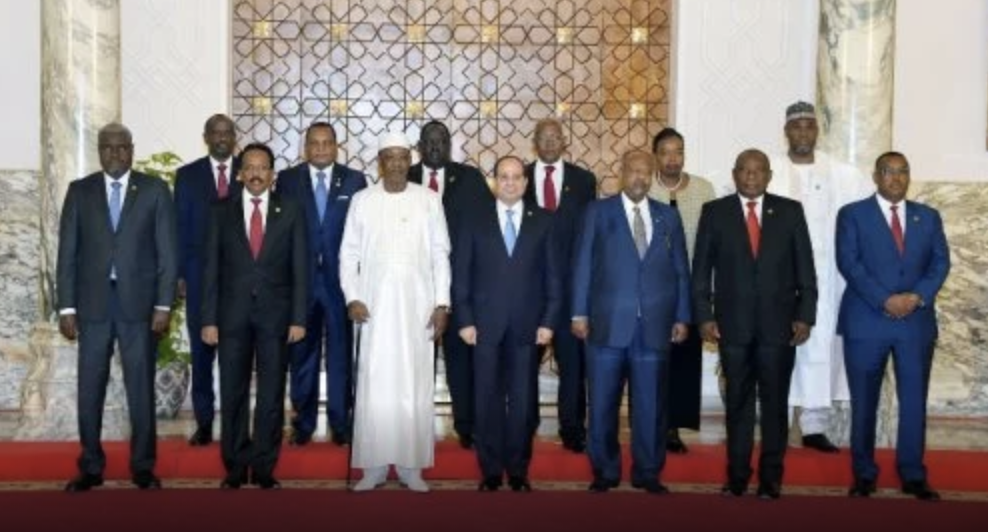
Sudan Tourism Industry: ATB President St. Ange wants Africa to stand by Sudan
People in Sudan are tasting freedom for the first time. It will be impossible to go back and tourism is a way to eventually rebuild the confidence and economy of this great nation.African Tourism Board (ATB) president Alain St. Ange had monitored what is happening in Sudan.
He said: “The situation that Sudan is facing needs for Africa as a whole to understand their dilemma and to be by their side.
The Government change in Sudan now needs to move to the reconstruction phase and enable their tourism industry players to rally and put the economy on the road of consolidation.

The USPs (Unique Selling Points) of Sudan are really sought after assets. Their pyramids are some of the biggest in the world and their underwater world in Sudan’s Red Sea remains a real gem.Members of the Sudan tourism industry are invited to join the African Tourism Board without charge. The African Tourism Board remains committed to being by their side.Currently, there are four members from Sudan registered in the ATB Directory
In the meantime, African Union leaders Tuesday have given Sudan’s transitional military council three months to achieve power transfer to civilian rule stressing that this delay should not be prolonged.
The meeting convened by the Egyptian Abdel Fattah al-Sisi who is also the Chairperson of the African Union in Cairo attended by the leaders of Chad, Djibouti, Somalia, South Africa, Ethiopia’s deputy prime minister, head of African Union Commission, foreign ministers and presidential envoys of Kenya, Nigeria, South Sudan and Uganda.
The meeting was held on the backdrop of a two-week delay given to the Sudanese military council by the Peace and Security of the African Union to hand over power to civilian rule.
The consultative meeting was briefed by Moussa Faki chairperson of the AU commission and who was in a two-day visit in Khartoum to assess the situation and met with the Sudanese stakeholders.
“The participating countries recognized the need to give more time to the Sudanese authorities and the Sudanese parties to implement these measures, taking into consideration that they will not be lengthy, and recommended that the African Peace and Security Council extend the schedule given to the Sudanese authority for three months,” said the statement.
After a meeting held with the military council last Saturday, the Freedom and Change forces decided to suspend talks with the military accusing them of working to reproduce the regime of President Omer al-Bashir and refusing to recognize their revolutionary legitimacy.
The head of the TMC political committee Omer Zain al-Din who negotiate with the opposition forces for his part says that they want only to establish a comprehensive government representing the whole political spectrum.
The meeting stressed that the Sudanese authorities and the political forces should work together in good faith to address the current situation in Sudan and to speed up the reestablishment of a constitutional regime.
This democratic political dialogue should be owned and led by the Sudanese themselves, “including all Sudanese parties including the armed movements,” further stressed the statement.
The Sudanese opposition groups said they will mobilize the street to press the military to fully respond to their demands.
However, some point to the need to get rid of Islamist generals in the military council as a condition to compose with the Sudanese military on the formation of the transitional institutions.

African Tourism Board launch on Thursday: More details just released
The African Tourism Board is ready to be launched in Cape Town on Thursday during the upcoming World Travel Market at the Cape Town International Convention Centre,
Conference Theatre.
A president and a CEO will be introduced during the launch event.
The focus of the launch event is diverse and includes Peace, Environment, Investment, Marketing, and Security.
African Tourism Board will be exhibiting at the World Travel Market on Stand AP12

15.30-15.40 Welcoming remarks
Juergen Steinmetz
Interim chairman of African Tourism Board
Chairman International Coalition of Tourism Partners
Introducing the African Tourism Board, Vision, Board Members, African Leaders,
Introduction of the new ATB President
TOURISM, INVESTMENTS & PEACE:
IT’S A PEOPLE BUSINESS

15.40-15.55
Dr. Taleb Rifai
Former UNWTO Secretary-General
2015-2017
A SPECIAL PLACE: CAPE TOWN

15.55-16.00
Enver Duminy
CEO Cape Town Tourism
A MINISTER OF TOURISM SPEAKS:

16.00-16.05
Hon. Moses Vikati
Minister of Tourism & Environmental Affairs
Kingdom of Eswatini, formerly Swaziland
AFRICA TOURISM LEADERSHIP FORUM AND AWARDS

16.05-16.10
Kwakye Donkor
CEO African Tourism Partner
Ghana & South Africa
THE ROLE OF CAMEROON TOURISM

16.10-16.15
Francoise Kameni Lele
AFBS Cameroon
TRAVEL & TOURISM SECURITY AND SAFETY

Keynote Speaker
16.10-16.40
Dr. Peter Tarlow, USA
Travel Security and Safety
www. safertourism.com
AFRICAN LUNG: IT’S A LAUNCH TODAY

Launch Announcement
16.40-17.00
Professor Geoffrey Lipman
President International Coalition of Tourism Partners
President SunX
The launch of Africa Lung, the most ambitious travel & tourism climate response program with its central focus on Africa.
Reaching out to Overseas Markets
THE US MARKET POTENTIAL: NOT ONLY NEW YORK OR LOS ANGELES

17.00-17.05
Juergen Steinmetz, president eTN Corporation
Inbound markets from USA
CHINESE TOURISTS: HOW TO DO IT

17.05-17.10
Doris Woerfel, CEO Southern Cross Experience, South Africa
China inbound market for Africa
TRAVELERS FROM ISRAEL: A HUGE POTENTIAL

17.10-17.15
Dov Kalmann, Israel
Israel inbound market for Africa
WHY INDIANS WANT TO EXPLORE AFRICA

17.15-17.20
Arjun Mukund, T&A Consulting, Delhi, India
Indian inbound market for Africa
The Road Forward for African Tourism Board

I HAVE A DREAM!
17.20-17.30
Alain St. Ange, Seychelles
Former Minister of Tourism Seychelles
President St. Ange Consulting
THE GLOBAL TRADE SHOW FOR AFRICA

17.30
Carol Weaving
Managing Director of Reed Exhibition Africa
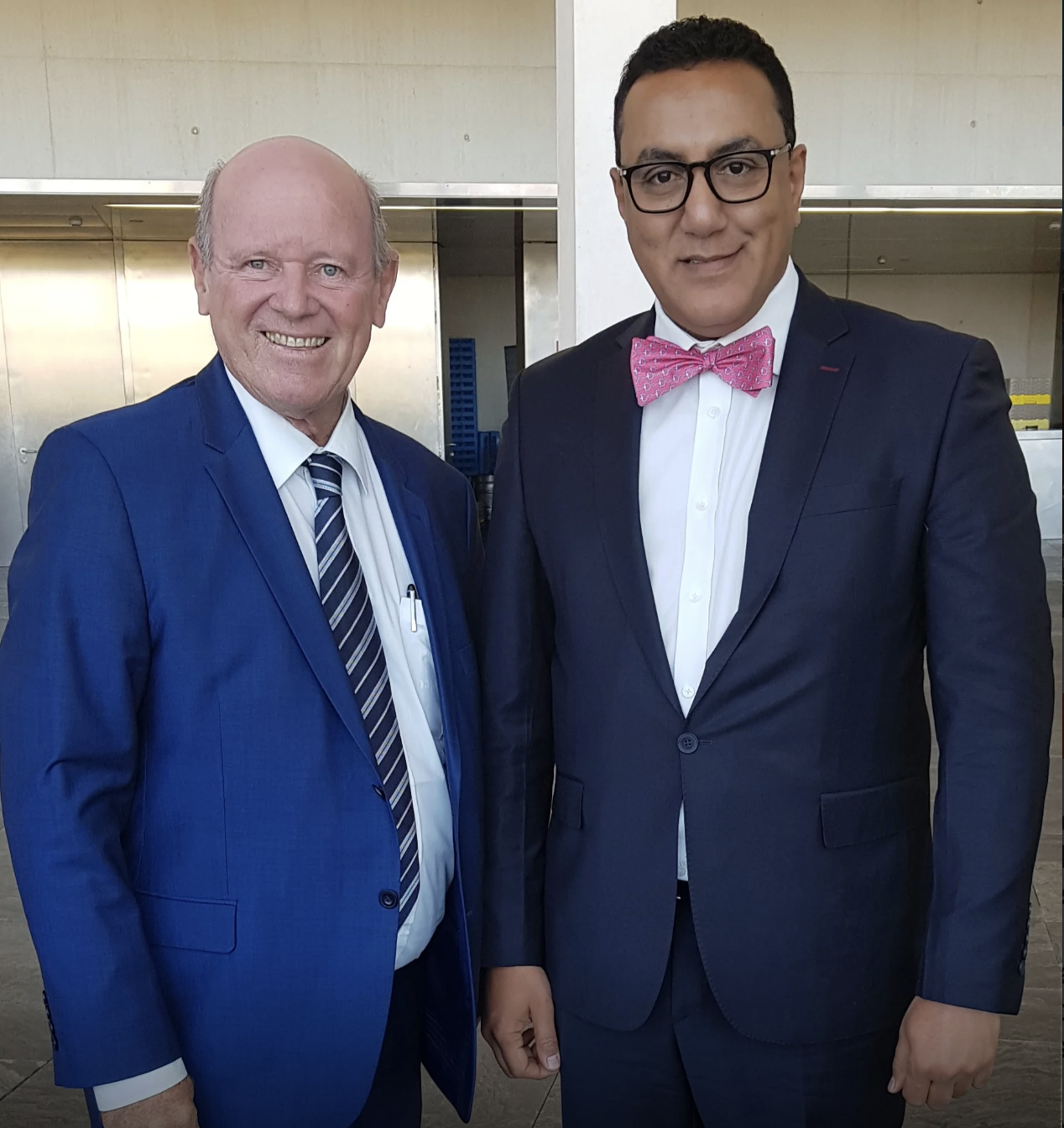
WTTC Summit 2019 Seville: The Untold Story
The World Travel and Tourism Council just finished their annual summit 2019 in the Spanish City of Seville last Friday.
A record number of delegates listened to presentations from fellow top leaders of the largest industry in the world. All of this was streamed live to the world. However, the conversation everyone had waited for with former US President Barak Obama was excluded. Perhaps the $4,000.00 price tag for non-members required the organizer to shield the former popular American president from public listeners.
eTN reached out to about 100 of the CEO’s, delegates and ministers that attended the 2-day event last week and everyone said the networking opportunities at WTTC summits was the real value for them to attend such a high profile event. See and to be seen is the true perk here. Top travel- industry people meet with other top CEO’s in the hallways and coffee shops or hotel suites. Some delegates only attended the opening ceremony and the Obama session but were roaming to shake hands with business partners, ministers and even heads of state.
Big business is done this way. It starts often with an exchange of ideas and can trickle down to billion-dollar transactions.
A WTTC summit is also the place a CEO can have a cup of coffee with a fellow CEO from a competing company.
Former Seychelles Minister of Tourism, Civil Aviation, Ports and Marine of Seychelles Alain St. Ange, who now leads his own consulting company, met with Kenya Tourism Minister Najib Balala consolidating the working cooperation between the two tourism personalities.St.Ange and Balala have been friends for a number of years and both men are seen as continent leaders in the field of tourism. Alain told eTN about his exchange with the First Lady of Kenya who delivered her speech at the WTTC summit.St.Ange said: “Minister Najib Balala of Kenya and me are expected to meet again in Nairobi shortly to discuss tourism and the development of tourism in Africa.”
This is a typical opportunity only such Summit offers.
WTTC is a different type of event. Changemakers meet behind the facade of top-notch presentations. Attending is a priceless opportunity.
However, reporting about the Seville summit was expensive for publications having to invest their own money to send a journalist and therefore had minimum results when it comes to instant and detailed news coverage.
Strangely there was no hosting support for journalists by the organizer according to PR consultant David Tarsh.
Hosting the WTTC Summit is expensive and seems to have a short life span as well unless the host destination is also willing to spend marketing Dollars to reach out to media and get the desired attention of the world.
This did not happen in Seville. Many requests from eTurboNews for example to include a series of interviews and destination coverage was never responded to by Seville Tourism Officials. Seville as a destination could have easily shined with global visibility.
eTurboNews is a proud media partner with WTTC.
www.wttc.org

About the African Tourism Board: Top important according to an African American Tourism Expert
Drew Barrett, a Chicago based African American tourism expert and consultant, thinks the newly founded African Tourism Board(ATB) is very important and potentially valuable to the nations of Sub-Saharan Africa.
ATB will celebrate its official launch on April 11 during the World Travel Market in Cape Town and has moved to a world of attention.
<The nations of Sub-Saharan Africa are very hungry for and in need of growth of their inbound international tourism business. Most, however, have a steep learning curve, over which they must overcome to achieve any measurable incremental results. Most are steeped in best practices of a bygone error of global tourism marketing if they are doing anything at all. Most are not.
Nations like Kenya, Tanzania, South Africa have significant global brand equity for leisure tourism. Others like Ethiopia, Nigeria, Ghana and again South Africa; are a compelling destination for business tourism. Yet on the extreme opposite end of the attractiveness spectrum others, due to conflict and a total lack of internal security are not in the running.
All nations of Sub-Saharan Africa with any viable tourism product are seeking to up their game, but have to reconcile a penchant, if not add to investing, and in many cases, mis-investing in energy, data +telecommunicationss, and transportation infrastructure to achieve modern global standards. They are missing there real opportunity.
The most readily available economic growth engine for all nations of Sub-Saharan Africa is their adventure, art, community, cultural, ecological (flora + fauna) and handicraft tourism products; in which they should invest in both development and marketing. The immense profit potential of such well planned and implemented investments, will return profits; which will pay for everything else.
I have two Sub-Saharan African nations, Kenya and South Africa, digress from World Class Tourism Marketers, not having a clue as to what to do; because they forsake a focus on their indigenous roots, attempting to promote being global business meeting and conference destinations; a playing field on which they cannot compete, for so many reasons.
I have just last week, submitted a comprehensive, preliminary strategic tactical concept proposal to a Northwestern Sub Saharan nation. I had developed similar proposals for three other nations. In each case, I have been working with someone who has strong connections to government decision makers; but not with any preconceived disposition toward action. In the most recent case, my contact is a division of the Ministry of Tourism.
Nigeria, a few years ago, invested in the development of a Culture and Music festival which it could market globally. The problem with some post colonial nations is, they are addicted to seeking the help of postcolonial consultant intermediaries of European and North American multinationals, for expertise. The problem is those consultants do not have the expertise necessary to enable the success of such an undertaking.
The consensus is to invest in building grand hotels, great roads, and transportation; and tourists will come. Wrong, they just end up with choking foreign debt and no tourist.
Again, the African Tourism Board, can be the way forward for the Nations of Sub Saharan Africa to be able to monetize their most readily available natural resource, as previously stated.
African Tourism Board brings to those nations both internal and external subject matter experts, professional practitioners, industry resources and massive implementation capabilities; in a unified platform which can teach the leadership of the nations of Sub Saharan Africa how to successfully market their destinations and tourism assets, to the billions of ready, willing and able international tourist.

African Tourism Board Launch: Climate Friendly Travel initiative “Partnerships for Change” to be revealed
The African Tourism Board Launch at the World Travel Market in Cape Town on April 11 will be the place Brussels based Professor Geoffrey Lipman will reveal his Climate Friendly Travel initiative.
Professor Geoffrey Lipman was the first president of the World Travel and Tourism Council (WTTC) from 1989 to 1999. WTTC revealed earlier this month that African Tourism is booming. It is important for Professor Lipman to launch his new global initiative in Africa.
A soft launch of his new initiative will be explained at the upcoming WTTC’s Summit in Seville, Spain next week.
Lipman shared the logo to promote his new program today with eTurboNews
Lipman explained the logo will pick up the Greta Thunberg message for the Travel & Tourism sector. Lipman added the logo will be the symbol of Climate Friendly Travel measured to manage: Green to Grow: 2050 Proof to Innovate.
It shows the late Maurice Strong, the father of sustainable development and the inspiration for his plan to put 100,000 STRONG Climate Champions across all UN States by 2030, to help in the essential transformation to the New Climate Economy.
Professor Lipman noted the symbol for SDG 17 “Partnerships for Change”, saying that the only future is a shared one, with the public sector, private sector and civil society joining the existential war on climate change together. This will go country by country: community by community.

Lipman also revealed that SUNx will be unveiling an icon project at the African Tourism Board launch on April 11, that will help to support a global scale climate resilience initiative, that links rainforest preservation, biodiversity conservation and sme entrepreneurship, with the latent potential of African Travel & Tourism.
More information on the African Tourism Board and the launch event on April 11 can be seen at www.africantourismboard.com
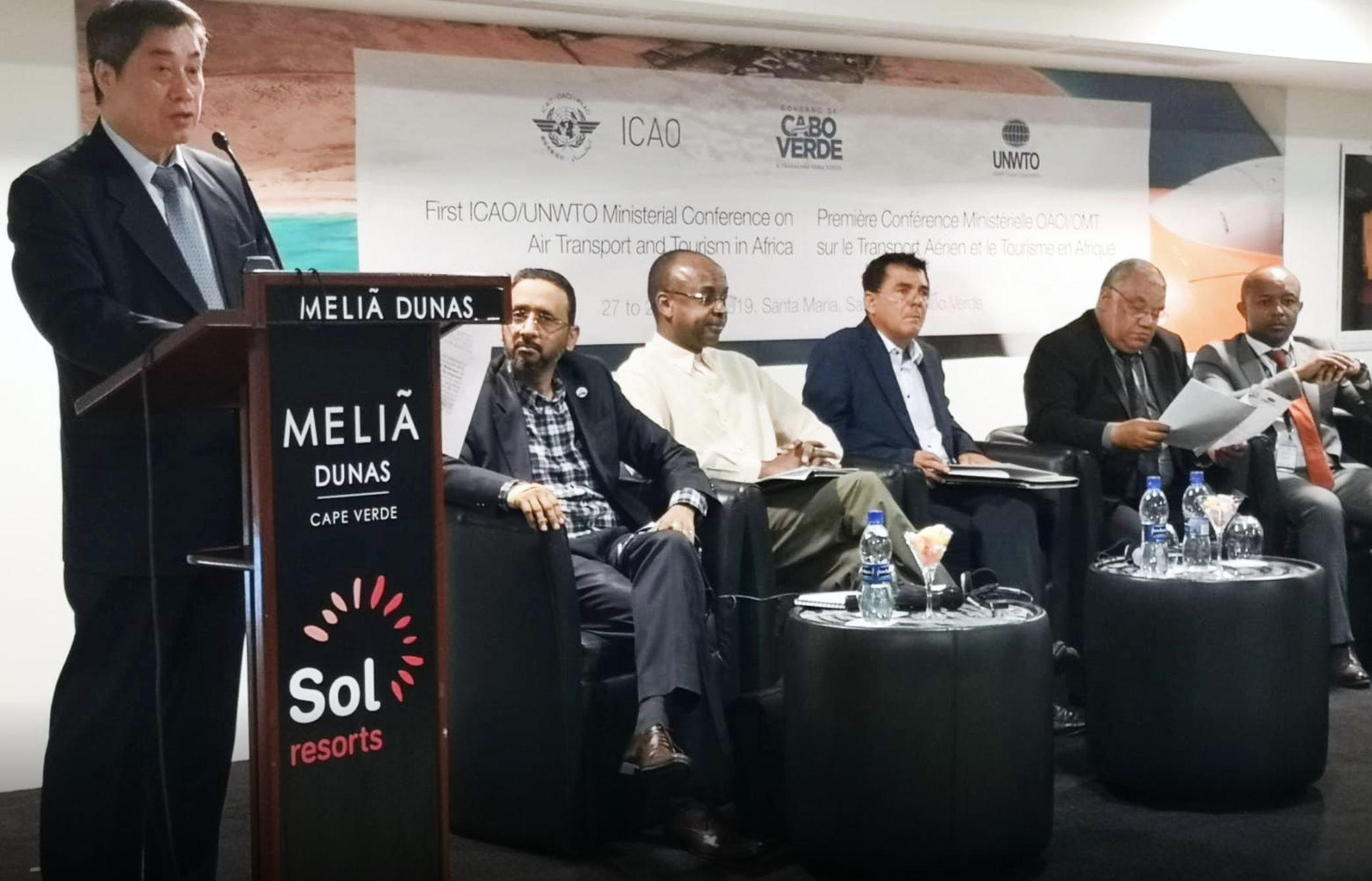
What is the discussion at the UNWTO / ICAO Ministerial Conference on Tourism and Air Transport?
A Panel discussion is ongoing and a packed program are planned today for delegates in Sai Island, Cabo Verde attending the First UNWTO/ ICAO Ministerial Conference Tourism and Air Transport.
Air Transport and Tourism Policies: Regulatory convergence to maximize and balance their benefits
Air Transport and tourism depend heavily on each other and are essential engines of trade and economic growth for both developed and developing countries.
Despite the synergies, there can be conflicts between aviation and tourism policies due to the difficulties of States in balancing the interests of their airlines and the optimum development of their tourism industries. Separate sectorial policies result in a fundamental disconnect, which constitutes a severe deterrent towards the development of both sectors. How do we enhance policy coherence between the two sectors, harmonize the regulatory frameworks, and prevent separate sectoral policies? How can we strike a balance to maximize the overall benefits of tourism and air transport in the national economy?
What is the current status of Africa’s regulatory framework and what is its impact on tourism and air transport (the Lomé Declaration and the related Action plans both for Air Transport and for Tourism?
How can Africa benefit from and implement the joint UNWTO and ICAO Medellín Statement on Tourism and Air Transport for Development? How can the African Governments promote cooperation and compatible decision-making among transport and tourism authorities and other ministries in charge of related portfolios, including finance, economic planning, energy, environment and trade?
What are the challenges encountered by tourism stakeholders in reflecting tourism business interests in national and regional air transport policies?
Connectivity and Seamless Travel: Best practices to serve tourists and passengers
Aviation and tourism are a customer-focused economic sector.
While there is no single definition of air connectivity, it can be viewed as the ability of a network to move passengers involving the minimum of transit points, which makes the trip as short as possible with optimal passenger satisfaction at the minimum price possible. The realization of seamless travel can improve overall travel experience, which in turn fuels tourism demand.
With the recent launching of the Single Africa Air Transport Market (SAATM), open skies over Africa may soon be a reality, building the necessary regulatory framework to increase international intra-Africa travel.
How do we optimize the flow of passenger traffic through the air transport system? How can we generate sufficient demand for direct air services between African sub-regions, especially between the East-West coasts?
How well do current air service agreements (ASAs) contribute to connectivity and what are the prospects of air transport liberalization? What constitute the bottlenecks and slowdowns of seamless travel in the air transport system? What regulatory schemes can be used or developed to assure essential air services to Least Developed Countries (LDCs), Landlocked Developing Countries (LLDCs) and Small Island Developing States (SIDS)?
What are the existing best practices and how could they be extended and adapted to other regions? What are the factors influencing airline choices for different market segments (the intercultural dimension)?
Funding and Financing for Development: Pragmatic measures to build a transparent, stable and predictable investment climate
Infrastructure deficiencies in the aviation and tourism sectors have long been an issue in Africa. While plans are in place to develop and modernize aviation infrastructure, relief is years away at best.
In the meantime, there will be lost opportunities for creating jobs and spurring economic growth. Another issue is the proliferation of taxes on tourism and air transport despite the fact that the industry recovers a vast majority of its own infrastructure costs through payments of user charges, rather than being financed through taxation.
Revenue raised by taxes can often be outweighed by the relinquished economic benefits as a result of dampened demand for air travel.
This Session will focus on
a) the creation of good governance and enabling the environment to build business confidence and encourage investments, and
b) the consolidation of planning and development efforts for aviation and tourism infrastructure in multi-modal and urban planning initiatives. What are the challenges of financing development projects related to the tourism and air transport sectors, particularly in LDCs, LLDCs, and SIDS?
What are the success stories in financing tourism and air transport projects? How do consumers perceive taxes, charges, and others levies and how to ensure transparency of taxes and charges to passengers and tourists?
Why is the limited volume of international public finance and assistance for development currently available for aviation and tourism infrastructure projects?
Travel Facilitation: Advancing visa facilitation in supporting economic growth
Travel facilitation aims at maximizing the efficiency of border clearance formalities while achieving and maintaining high-quality security and effective law enforcement. Allowing passengers/tourists to cross international borders safely and efficiently contributes significantly to stimulating demand, enhancing the competitiveness of States, creating jobs and fostering international understanding.
In spite of the great strides made in recent decades in facilitating tourist travel in Africa, there is still room for considerable progress. For example, electronic visa processes and delivery could make travel more accessible, convenient, and more efficient without a diminution of national security.
States should also look into increasing cooperation on bilateral, regional and international travel facilitation regimes. How can new technologies be used to make travel more accessible, convenient and efficient? How to define and implement policies which facilitate international travel and tourism while ensuring the security and integrity of traveler identification and border controls?
How well do e-passports, e-visas and other documentation deal with emergent threats to security? How could the African States learn from other effective best practices?
